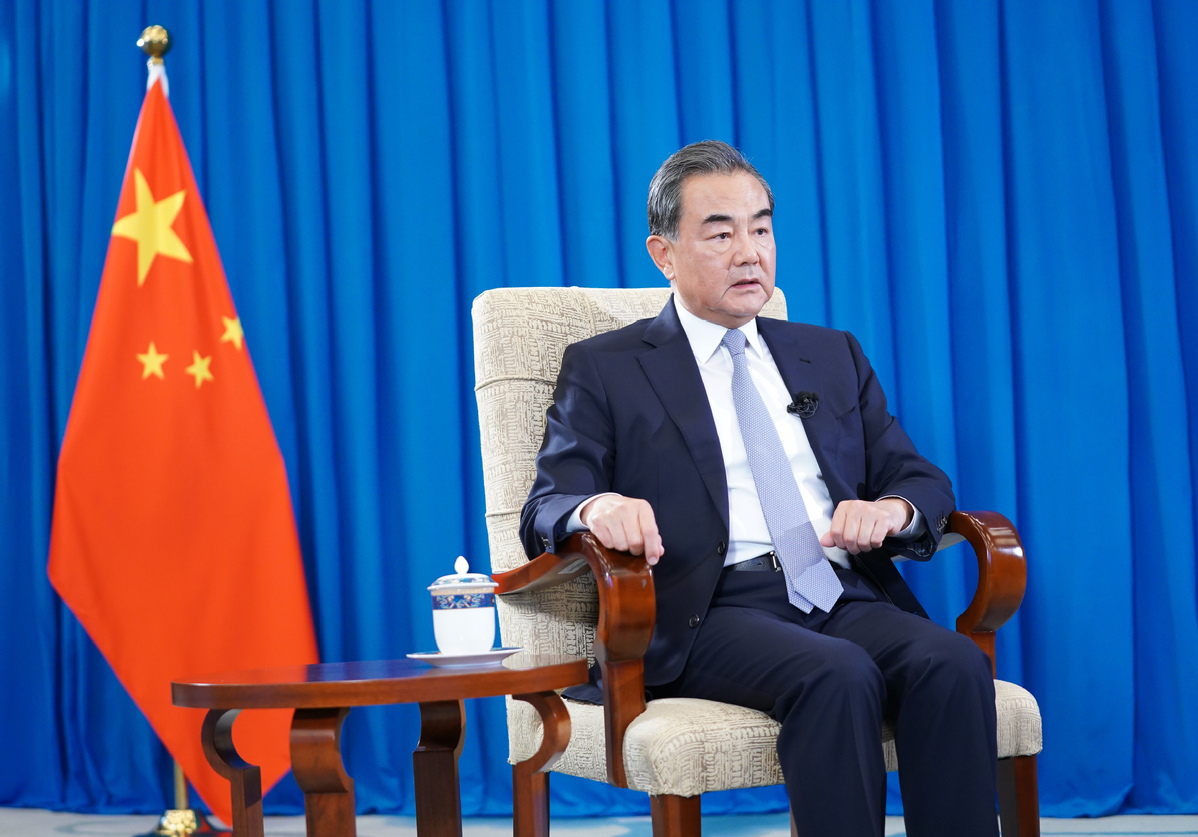Areas of cooperation with US sketched out
By LIU YINMENG in Los Angeles | China Daily | Updated: 2020-12-21 07:52

Recovery among issues that top two economies can advance, Wang Yi says
Chinese State Councilor and Foreign Minister Wang Yi has pointed to the COVID-19 response, economic recovery from the pandemic and climate change as three potential areas of cooperation between Beijing and Washington.
Wang identified the prospective areas of cooperation as he urged leading officials in the two biggest economies "to restart dialogues and return bilateral relations to the right track".
"I wish to stress that China's policy toward the United States is always stable and consistent," Wang said in a video address on Friday. "We always believe that with deeply interwoven interests between the two countries, neither can do without the other, remodel the other, or replace the other."
He said that "the bilateral relationship is no zero-sum game", and that the success of one does not have to entail the other's failure. While China-US cooperation could make "great things happen", confrontation would not only "spell disaster "for the two countries but also for "humanity as a whole", he said.
The foreign minister's address was heard in a webcast hosted by the US Asia Society, a New York-based think tank. He was introduced by former Australian prime minister Kevin Rudd, who is the president of the Asia Society Policy Institute.
The online event took place as the White House added more Chinese companies to a restrictive trade list on Friday.
Wang noted that enhanced international coordination and cooperation are needed to tackle the COVID-19 pandemic. In this regard, the US and China should lead by example through stepping up their responsibilities as major powers and working together.
However, the US has interfered in China's internal affairs on a series of issues and harmed China's interests, causing the bilateral relations to spiral down to "the lowest level" since the two nations established diplomatic ties over four decades ago, Wang said.
Unilateralism harmful
Wang noted that power politics, protectionism, unilateralism and "McCarthyism" jeopardized international order and relations.
China and the US, as the world's two largest economies, permanent members of the UN Security Council, as well as the largest developing and developed country, respectively, should "form the right perception about one another, act in line with the trend of the times, and heed the aspirations of the international community", Wang said.
The foreign minister underscored that China sticks to "an independent foreign policy of peace" and seeks to engage with other countries for friendship and cooperation on the basis of the Five Principles of Peaceful Coexistence.
Wang reiterated that China has no intention to compete for hegemony. China never interferes in other nations' internal affairs and doesn't export its system or model, let alone seeks spheres of influence, he said.
He said it's regrettable to see that some senior US officials have pointed fingers at China.
Instead of seeking common interests and finding room for cooperation, some politicians "insisted that China is a main threat", Wang said. China was not, is not, and will not be a threat to the US, he stressed.
"We hope that the US side will join us in rebuilding the strategic framework for the healthy and steady growth of China-US relations on the basis of mutual respect, through dialogue and consultation, and by way of deepening our common interests and enhancing the support by the people," the diplomat said.
Wang, in outlining a framework for improving Sino-US ties, said the countries have ample space for cooperation in the COVID-19 response, economic recovery and climate change-three of the four priorities highlighted by US President-elect Joe Biden' transition team.
The two countries could also enhance their cooperation in diagnostic and therapeutic experience, production of personal protective equipment, as well as in vaccine research, manufacturing and distribution, Wang said.
The diplomat said China welcomes Biden's pledge to bring the US back to the Paris Agreement on climate change after he takes office in January. China is also ready to work with the US to strengthen dialogue on macroeconomic matters and contribute to global growth.
























